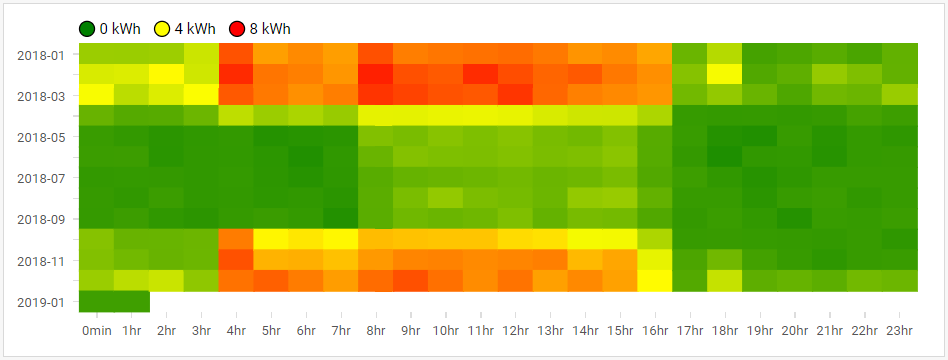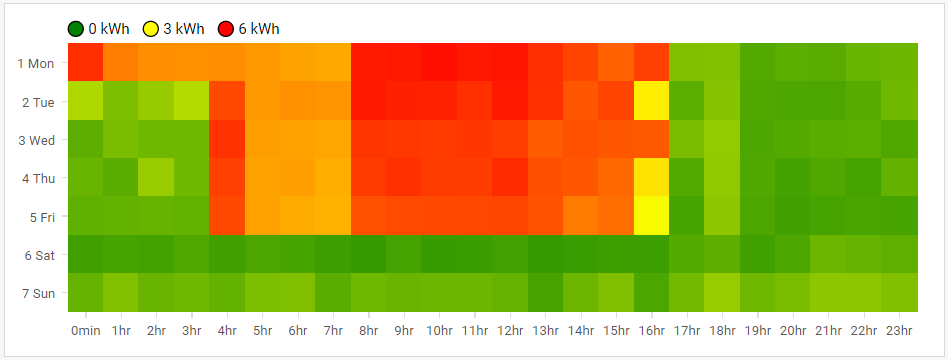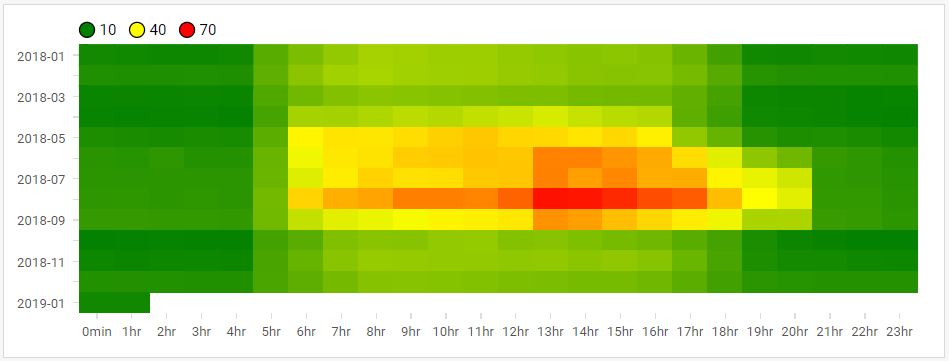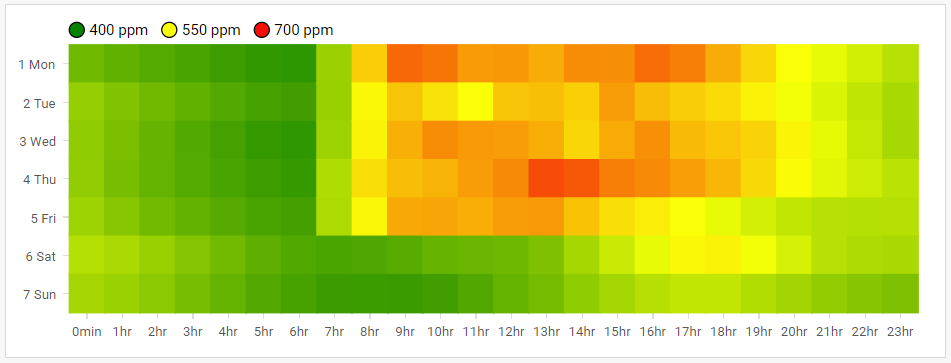Carpet plots
Carpet plots represent an efficient way for the first visual data analysis. Beside classical carpet plot (or heatmap) we use more sophisticated plots with aggregations. The basic principle is similar to pivot tables and pivot plots. User defines columns, rows and fold function. The value of each cell then represents aggregation of all values that belong to the particular cell (e.g. average of of all values that were measured on Mondays between 2 and 3 am).
Below are examples of useful carpet plot applications.
Electrical heating
Plots capture average electrical energy consumption during a week. In this case, electricity is used for heating, as can be seen from the first plot (horizontal axis: hour in day, vertical axis: month). There is a clear start and end of heating season.

Detailed look at weekly schedule shows that heating starts at 4 am during working days, except of Monday, when it starts at midnight (horizontal axis: hour in day, vertical axis: day of week). There is a clear end of working hours, as expected in case of this office building.

Cooling outside working hours
Increase of electrical energy use during summer is usually expected in case of office buildings during summer. Carpet plots are perfect tool for quick evaluation of cooling regimes. This plot is an example of a wrong cooling regime setting. There is an increase of energy consumption during summer, as expected. However, one can observer increase also after opening hours (after 4 pm).

CO2 concentration
Evaluation of CO2 by means of carpet plot can also provide useful overview. Data from IoT indoor air quality sensor are evaluated in the next example. There is an increase of CO2 concentration during opening hours. Overal CO2 concentrations are ok but slow decrease of CO2 concentrations during evening and night reveals absence of ventilation.

AHU pressure difference
HVAC appliance operation can be investigated by means of carpet plots as well. Bellow is a carpet plot (horizontal axis: day, vertical axis: hour of day) of AHU pressure difference. It shows regular regime with some irregularities at the end of displayed interval. Note that these irregularities cannot be easily found using an usual line chart.
